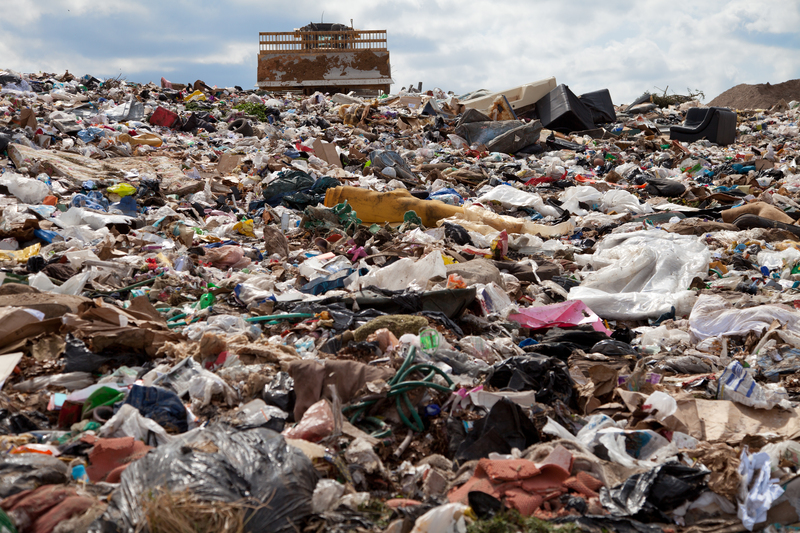The Savvy Person's Guide to Saving on Bulky Waste Removal
Looking to clear out bulky waste without breaking the bank? Whether you're moving house, renovating, or simply decluttering, bulky waste removal can feel overwhelming and expensive. In this comprehensive guide, you'll discover smart strategies to save money on removing large items efficiently and responsibly. Stay tuned for cost-effective tips, eco-friendly options, and expert advice on navigating bulk waste disposal with ease!

Understanding Bulky Waste: What Qualifies?
Before diving into ways to save on bulky item removal, it's crucial to know what counts as "bulky waste." Typically, bulky waste includes items that are too large for regular household bins:
- Furniture: sofas, beds, wardrobes, dining tables
- Appliances: refrigerators, washing machines, stoves
- Mattresses and box springs
- Large electronics: televisions, computers, monitors
- Carpets and rugs
- Garden debris: tree branches, large plant pots, lawnmowers
Most local councils and private companies offer specific bulky waste collection or removal services. However, costs can vary significantly depending on the service provider and your location.
Why Does Bulky Waste Removal Cost So Much?
Bulky waste is challenging to manage due to its size, weight, and lack of recyclability. Collection often requires specialized trucks, labor to handle heavy objects, and additional processing fees at landfills or recycling centers. That's why knowing your options and planning ahead can lead to significant savings on large item disposal.
Top Tips to Save Money on Bulky Waste Removal
1. Use Your Local Council's Free or Low-Cost Services
Many municipalities offer free bulky item collection or heavily subsidized services for residents. Some allow a certain number of pickups per year at no extra charge. Check your local council's website or call the public works department for details on:
- Scheduling pickups (dates may be limited)
- Accepted items and restrictions
- Fees for extra items
- Eco-friendly bulky waste recycling programs
Tip: Be aware of eligibility requirements such as proof of residence and maximum item limits.
2. Separate and Sort Before You Dispose
Disposal costs often depend on volume and weight. Reduce your load and your bill by breaking down large items (e.g., disassembling beds and tables) and removing non-bulky waste. Segregate materials--wood, metal, electronics--as many recycling centers or scrap yards might accept some items for free or even pay you!
- Break furniture into flat pieces
- Detach metal parts and recycle separately
- Remove hazardous components (batteries, fluids)
3. Recycle, Repurpose, or Donate Whenever Possible
Not everything needs to head to the landfill. Repurposing, donating, or freecycling can eliminate disposal costs and benefit your community. Here's how to give bulky items a second life:
- Contact local charities or non-profits for furniture and appliances in good condition (e.g., The Salvation Army, Goodwill, Habitat for Humanity ReStores)
- List items on online marketplaces like Facebook Marketplace, Craigslist, Freecycle, or Nextdoor
- Offer items to friends, family, or neighbors for reuse
- Repurpose components for other projects (e.g., old doors as tabletops, pallets as garden planters)
Fun Fact: Many organizations offer free pickup for qualifying donations!
4. Time Your Disposal Carefully
Avoid peak periods such as spring cleaning season and post-holiday weeks, when demand for removal is high and prices may spike. Book ahead for planned projects to secure better rates, or coordinate with neighbors for a group pickup that can split the cost among several households.
5. Shop Around for Private Bulky Waste Collection Services
If free council services aren't sufficient or available, compare prices from multiple bulky waste disposal companies. Look for:
- Transparent pricing: ask for a total quote, including admin fees or surcharges
- Eco-conscious companies that recycle a high percentage of collected items
- Discounts for curbside placement or pre-disassembled items
- Smaller, local operators who may offer lower rates than large franchises
Pro Tip: Ask about pricing by volume (cubic yards/meters) versus weight. Pick the more cost-effective structure for your type of waste.
6. Consider DIY Alternatives: Rent a Skip or Haul It Yourself
If you have multiple bulky items, hiring a skip (dumpster) or making trips to the local tip may be cheaper. Factor in the cost of vehicle rental, fuel, and tip fees--but for large loads, this approach can yield significant savings. Remember to:
- Check which centers accept household bulky waste and their sorting requirements
- Enlist friends or family for heavy lifting
- Wear protective gear for moving and loading
- Check for permits or time limits on skip placement, especially in urban areas
What to Watch Out For: Avoiding Hidden Fees and Pitfalls
When booking a bulky waste pickup or disposal, keep an eye out for:
- Extra charges for certain materials (e.g., electronics, mattresses, hazardous waste)
- Additional fees for accessing your property (stairs, tight hallways, no elevators)
- Weight overages for skip rentals
- Minimum load costs or predetermined rates per item
- Non-refundable deposits or cancellation penalties
Always read reviews and understand terms before booking a service. Ask for a written estimate and clarification on anything unclear to avoid surprises.
Eco-Friendly Options for Bulky Item Removal
Green Disposal Services
Choose bulky waste removal companies that prioritize recycling and responsible disposal. Many leading providers boast high landfill diversion rates, ensuring that much of your disposed item is recycled or repurposed. Ask about:
- Their standard recycling practices
- Partnerships with charities or recycling organizations
- Statistics on how much waste is kept from landfills
Reuse Networks and Circular Economy Solutions
More municipalities and private companies are joining the circular economy by connecting residents with reuse schemes:
- Select "re-home" options when booking pickups--some companies resell or donate suitable items
- Explore local repair cafes or upcycling workshops that accept broken furniture or equipment
- List large usable goods on sharing networks
Supporting these schemes not only saves you money but also helps the environment by reducing landfill pressure.
Special Cases: Bulky Waste Removal for Businesses, Landlords, and Large Properties
Large-scale clearances bring unique challenges but also opportunities for savings:
- Negotiate bulk rates: for office buildings, apartment complexes, or multiple units
- Partner with specialized commercial bulky waste services
- Combine pickup with regular waste management contracts for discounted rates
- Sell or auction off valuable items in bulk (e.g., office furniture, working appliances)
Housing Associations and Property Managers
If you manage multiple residences, coordinate community-wide bulky waste days where tenants can dispose of items at one time for a reduced cost. Some councils partner with housing associations for subsidized removal in targeted clean-up events.
Clever Tricks for Reducing Bulky Waste Generation
Cutting back on how much you need to dispose of is the best long-term cost-cutter:
- Buy quality items designed for easy repair, reuse or recycling
- Choose modular furniture that's simple to disassemble and transport/resell
- Whenever possible, rent or borrow large furniture or appliances for short-term needs
- Maintain items well to extend their usable life

Frequently Asked Questions: Bulky Waste Removal and Cost Savings
Q: What's the cheapest way to get rid of bulky waste?In most cases, the cheapest option is your local council's free or subsidized bulky collection. If that's not available, selling or giving away usable items can eliminate haulage costs entirely.
Q: Is it illegal to dump bulky waste on the curb?Yes! Fly-tipping (illegal dumping) can result in significant fines or penalties. Always use licensed removal services or council collection options.
Q: Can I take bulky items to the landfill myself?Most household waste sites accept large items, often for free or a modest fee. Check ahead for restrictions--some centers do not allow construction debris or commercial waste.
Q: Are mattresses or electronics more expensive to dispose of?Often yes. These items can incur extra fees due to special recycling or handling requirements. Look for recycling programs specific to these materials--some retailers or manufacturers may offer take-back schemes.
Summary: Start Saving on Bulky Waste Removal Today!
Bulky waste removal doesn't have to drain your wallet or harm the planet. By getting informed, planning ahead, and using all available options--from council collections and clever upcycling to private discounts and eco-friendly disposal--you can handle even the largest clear-out efficiently. Remember:
- Research local policies, programs, and companies
- Break down and sort items for better rates
- Donate or sell wherever possible
- Time your pickups to avoid surcharges
- Protect the environment for future generations
With these savvy strategies, your next big clear-out will be affordable, responsible, and stress-free. Happy decluttering!
